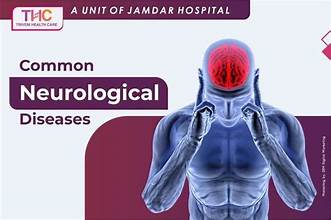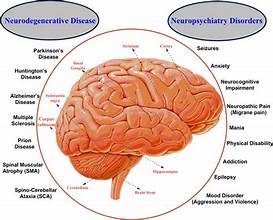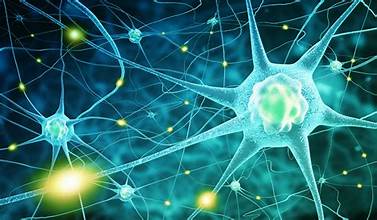Doctorhub360.com Neurological Diseases: A Comprehensive Guide to Understanding and Managing Neurological Conditions

Neurological diseases are a diverse group of disorders that affect the nervous system, including the brain, spinal cord, and nerves throughout the body. With the increasing awareness of mental and physical health, understanding neurological diseases has become essential for improving patient outcomes. Doctorhub360.com neurological diseases offers resources and insights for those seeking information about neurological health, from common conditions like stroke and epilepsy to rare diseases such as multiple sclerosis and Huntington’s disease. This article aims to provide an in-depth understanding of these conditions, their symptoms, causes, diagnosis, and treatments, while also shedding light on the critical role doctorhub360.com neurological diseases plays in educating and supporting both patients and healthcare professionals.
Table of Contents
What Are Neurological Diseases?
Neurological diseases encompass a wide range of conditions that affect the nervous system. The nervous system is responsible for sending, receiving, and processing signals from the body, and when something disrupts its normal functioning, it can lead to neurological disorders. These diseases can affect movement, memory, cognition, and other essential functions.
Common neurological diseases include:
- Alzheimer’s Disease
- Parkinson’s Disease
- Multiple Sclerosis
- Epilepsy
- Stroke
- Migraine
- Amyotrophic Lateral Sclerosis (ALS)
Doctorhub360.com neurological diseases provides detailed information and resources about these conditions, aiming to raise awareness and offer support to patients and their families.
Symptoms of Neurological Diseases
The symptoms of neurological diseases vary widely depending on the specific condition and the part of the nervous system that is affected. However, some common symptoms that may indicate a neurological problem include:
- Memory loss or confusion
- Muscle weakness or paralysis
- Severe headaches or migraines
- Tremors or shaking
- Difficulty speaking or understanding speech
- Loss of coordination or balance
- Seizures
- Sensory disturbances such as numbness or tingling
If you experience any of these symptoms, it’s essential to seek medical advice promptly. Doctorhub360.com neurological diseases emphasizes the importance of early diagnosis and intervention in managing these conditions.
Causes and Risk Factors for Neurological Diseases

Neurological diseases can be caused by a variety of factors, including genetics, environmental influences, and lifestyle choices. Some of the most common causes and risk factors include:
- Genetics: Many neurological diseases, such as Huntington’s disease, are inherited and caused by mutations in specific genes.
- Infections: Certain infections, such as meningitis or encephalitis, can affect the nervous system and lead to neurological problems.
- Trauma: Physical injuries to the head or spinal cord can lead to neurological damage.
- Toxins and chemicals: Exposure to toxins, such as heavy metals or pesticides, can increase the risk of developing neurological diseases.
- Chronic conditions: Diseases like diabetes and hypertension can contribute to the development of neurological disorders over time.
Doctorhub360.com neurological diseases helps to identify potential risk factors and suggests preventive measures to reduce the impact of these diseases.
Diagnosing Neurological Diseases
Diagnosing neurological diseases typically involves a combination of medical history, physical examinations, imaging tests, and sometimes genetic testing. The diagnostic process may vary depending on the specific condition being evaluated. Common diagnostic tools include:
- MRI (Magnetic Resonance Imaging): Used to create detailed images of the brain and spinal cord.
- CT Scan (Computed Tomography): Provides cross-sectional images of the brain to detect tumors, strokes, or other abnormalities.
- EEG (Electroencephalogram): Measures electrical activity in the brain and is commonly used to diagnose epilepsy.
- Blood Tests: Help to detect infections, inflammation, or other underlying conditions contributing to neurological symptoms.
Doctorhub360.com neurological diseases provides expert guidance on understanding the tests involved in diagnosing various neurological conditions.
Treatment Options for Neurological Diseases
Treatment for neurological diseases depends on the specific condition, its severity, and the overall health of the patient. In general, treatments can include medications, surgery, physical therapy, and lifestyle modifications. Below are some examples of treatment options for common neurological disorders:
- Medications: Many neurological diseases, such as epilepsy and Parkinson’s disease, can be managed with medications that help control symptoms and prevent progression. For example, anticonvulsants are commonly prescribed to control seizures in epilepsy.
- Surgical Interventions: In certain cases, surgery may be necessary. For example, patients with Parkinson’s disease may undergo deep brain stimulation (DBS) surgery to improve motor function.
- Physical and Occupational Therapy: Patients with neurological diseases affecting movement, coordination, or speech may benefit from physical therapy to improve motor skills and occupational therapy to assist with daily activities.
- Lifestyle Modifications: Diet, exercise, and mental health care can play a significant role in managing neurological diseases. For example, regular physical activity can reduce the symptoms of conditions like Parkinson’s disease and stroke.
Doctorhub360.com neurological diseases provides valuable information on treatment options for various neurological conditions and helps patients explore the best approaches for managing their disease.
The Role of Doctorhub360.com Neurological Diseases in Patient Education and Support

Doctorhub360.com neurological diseases serves as an excellent resource for both patients and healthcare professionals seeking knowledge and support about neurological health. The website offers up-to-date information on a wide range of neurological conditions, helping users understand the diseases, symptoms, and treatment options.
One of the core aspects of doctorhub360.com neurological diseases is its focus on patient education. Knowledge is a crucial tool in empowering patients to make informed decisions about their health. The site provides articles, research studies, expert opinions, and personal stories, all aimed at fostering a deeper understanding of neurological diseases.
Additionally, doctorhub360.com neurological diseases offers support services, including forums for individuals with similar experiences to connect and share advice. This helps build a supportive community where patients, caregivers, and healthcare professionals can collaborate on finding the best treatment and coping strategies.
Advances in Neurology: Emerging Treatments and Technologies
The field of neurology is constantly evolving, with new treatments and technologies offering hope for patients with neurological diseases. Researchers are exploring novel therapies such as gene therapy, stem cell therapy, and immunotherapy for conditions like Alzheimer’s disease and multiple sclerosis. Some of the most promising advances include:
- Gene Therapy: Involves modifying or replacing faulty genes that cause neurological diseases. For example, gene therapy has shown promise in treating spinal muscular atrophy (SMA), a condition that causes progressive muscle weakness.
- Stem Cell Therapy: Stem cells have the potential to regenerate damaged nerve cells, offering hope for conditions like Parkinson’s disease and spinal cord injuries.
- Immunotherapy: This approach utilizes the body’s immune system to target and destroy abnormal cells, which is particularly useful for neurological cancers such as glioblastoma.
By staying informed about these advancements, doctorhub360.com neurological diseases ensures that patients and healthcare professionals are aware of the latest developments in the field and how they might benefit from new treatments.
The Importance of Support Networks for Neurological Disease Patients
Living with a neurological disease can be challenging, both physically and emotionally. Patients often face significant lifestyle changes, and their families and caregivers may experience stress and burnout. Support networks play a vital role in improving the quality of life for both patients and caregivers.
Organizations like doctorhub360.com neurological diseases connect individuals with online support groups, local resources, and counseling services. These networks provide emotional support, practical advice, and a sense of community for those navigating the challenges of living with neurological conditions.
Also read Ikoku with Hammer Japanese Bronze Sculpture: A Masterpiece of Craftsmanship and Culture
Conclusion
Neurological diseases are complex and diverse, affecting millions of people worldwide. Early diagnosis, effective treatment, and ongoing support are key to managing these conditions and improving the quality of life for those affected. Doctorhub360.com neurological diseases is an invaluable resource for individuals seeking information, education, and support related to neurological health. Through its comprehensive resources, expert guidance, and patient-centered approach, doctorhub360.com neurological diseases helps to raise awareness, promote research, and support patients and healthcare professionals in their efforts to manage neurological diseases.
With continued advancements in treatment and a focus on patient education, doctorhub360.com neurological diseases is committed to improving the lives of individuals living with neurological disorders and contributing to a better understanding of these conditions.



